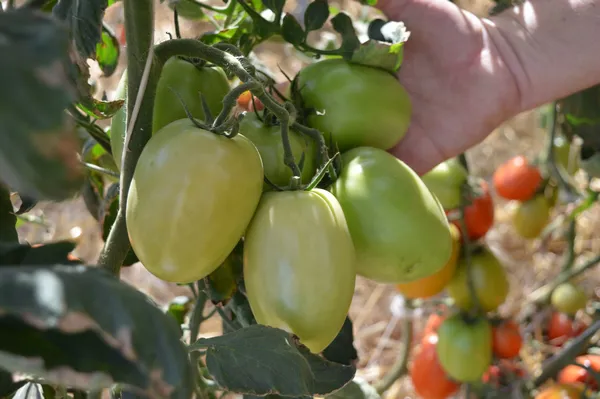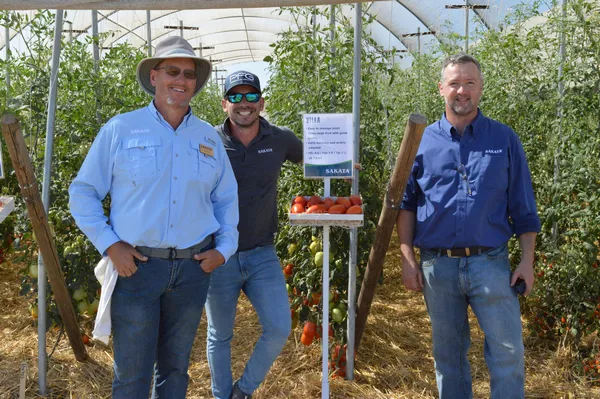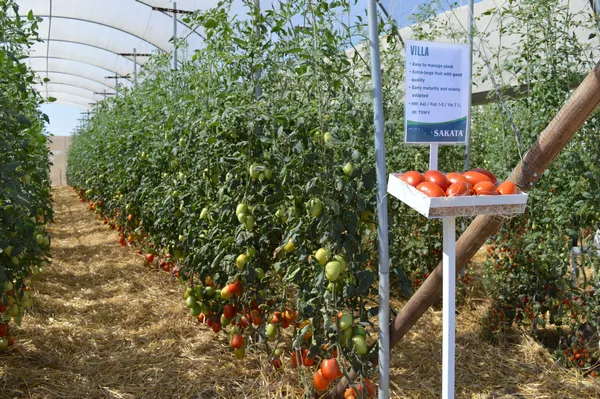 “We believe we have developed a field-tomato variety that changes the industry,” says Bryan Zingel with Sakata Seed America. “In terms of quality, the domestic market doesn’t really have anything like this,” he added. Zingel talks with passion about the company’s new Villa tomato that symbolizes high quality and high yield.
“We believe we have developed a field-tomato variety that changes the industry,” says Bryan Zingel with Sakata Seed America. “In terms of quality, the domestic market doesn’t really have anything like this,” he added. Zingel talks with passion about the company’s new Villa tomato that symbolizes high quality and high yield.
Over the years, the open field tomato market has shifted from indeterminate tomato plants to determinates. Although indeterminates are known for growing a higher quality tomato, they are more labor-intensive and costly as they tend to grow high and need substantial staking for support. Determinates are more compact, but the plant is more stressed, resulting in lower quality fruit.

High yield and high quality
Driven by labor issues and consumer demand for a high-quality tomato, Sakata Seed America developed this field tomato variety that combines the best of both worlds. Introduced to the market this year, Villa is an indeterminate tomato variety that doesn’t grow as high as the traditional indeterminate plants. “Yet, it has the ability to produce incredible yields and high-quality fruit,” says James Galante with Sakata Seed America. “We believe this vine-ripened variety is a very innovative product.”
 From left to right: David Wolff, James Galante and Bryan Zingel with Sakata Seed America.
From left to right: David Wolff, James Galante and Bryan Zingel with Sakata Seed America.
It brings novelty to the East Coast where it has been trialed over the past couple years. Villa has also been showing good results in Mexico, where it was initially developed about four to five years ago. This short-cycle indeterminate ripens early. “It is one of the earliest products in the marketplace and will compete against determinate varieties,” said Zingel. “We believe it is a very friendly variety for the grower as it results in about 20 percent higher yields.” In Sinaloa, the average yield of the Villa variety is 18,000 boxes per hectare, which is about 7,300 boxes per acre.

Next week, Sakata Seed team members will be available at PMA Fresh Summit to discuss the company’s latest innovations. Please stop by booth #1879 to learn more.
For more information:
Alicia Suits
Sakata Seed America, Inc.
Ph: +1 (408) 778-7758
asuits@sakata.com
www.sakata.com
